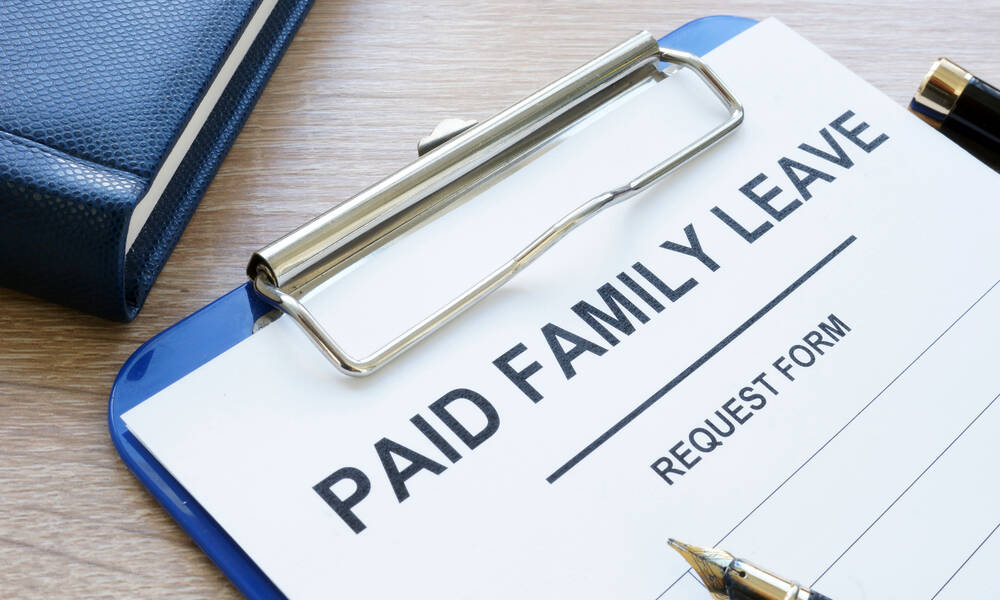
Paid Family Leave Gains Support from Business Groups
A new bill awaiting the president's signature would provide paid parental leave for federal employees. Some business groups are advocating for a consistent family leave policy in the private sector.
Paid family leave is a hot topic in Washington, DC, as the year ends—and unlike previous attempts to require employers to provide the benefit, this time the policy is attracting support from the business world.
Organizations representing businesses big and small are getting involved in advocacy around the issue. The proposed Family and Medical Insurance Leave (FAMILY) Act, for example, would fund partially paid family leave through a payroll tax. Additionally, a bill on President Donald Trump’s desk, which he says he will sign into law, will provide 12 weeks of paid parental leave for federal government employees and could build momentum for a broader law.
The Business Roundtable—an organization of corporate CEOs that made waves earlier this year when its members adopted a statement declaring that maximizing shareholder value was no longer the primary reason corporations exist—is now calling for leaders in Washington to make paid family leave available “to as many working Americans as possible.”
“Legislation should provide uniform standards that apply to all covered employees and that adhere to the federal Family and Medical Leave Act requirements,” the group wrote in a letter to congressional leaders [PDF]. “Doing so would benefit employees needing coverage as well as help businesses challenged by the growing patchwork of competing and inconsistent state plans.”
Meanwhile, a new coalition of small-business owners launched last week to push for the same goal. Small Business for Paid Family and Medical Leave—which includes the Main Street Alliance, the National LGBT Chamber of Commerce, and the Small Business Majority, as well as other partners—aims to counter the common claim that paid family leave is too expensive for small employers.
“Everyone talks about small business and what small-business owners need. But when you talk to small-business owners, it’s surprising,” Main Street Alliance Director Amanda Ballantyne told Bloomberg Law. “It gives real small-business owners the chance to stand up and talk about the policies that would help them and help their employees.”
Paid family and medical leave has traditionally had wide public support. A 2017 study from Pew Research Center found that 85 percent of Americans surveyed felt that employers should offer it, but respondents differed on whether it should be mandatory or voluntary. A slight majority said the federal government should require employers to offer it, and a strong minority said it should be optional.
The National Federation of Independent Business, which represents small businesses, opposes a paid family leave requirement, saying many of its members already offer paid time off, though less than 20 percent specifically provide paid maternity leave.
“Trust us to treat our employees well,” NFIB public policy and advocacy lead Brad Close told USA Today recently. “Please don’t make a ‘one size fits all’ for every business out there. It’s not going to work for the little guys.”
Most associations provide their staff with some sort of family leave as a part of their benefits package—61.9 percent of associations say they offer it, according to the 2018–2019 edition of the ASAE Association Compensation & Benefits Study. The median number of family leave days offered by associations is 30, the study found.
(designer491/iStock/Getty Images Plus)






Comments